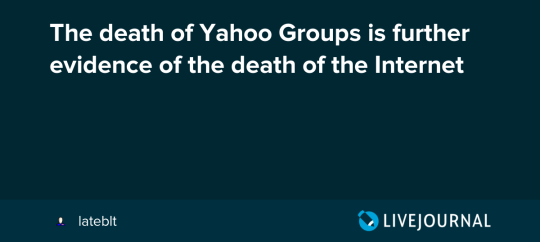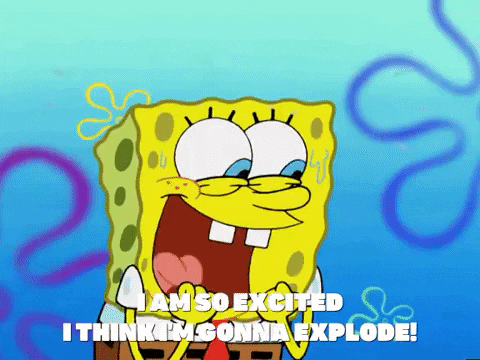
" Fiction gives us a second chance that life denies us" (P. Theroux) She/her - Writer on Ao3 (Jikook own me to the moon and back)
642 posts
Wow, These Are Fantastic Tools! Thanks!
Wow, these are fantastic tools! Thanks!
how to make a story file
As I am preparing for Camp NaNo*, I have been working on my story file. It occurred to me this might not be common or popular practice. “Story File” is a name I gave it and maybe some of y’all have a different name with the same contents.
*There’s still time to apply to join my Camp NaNo cabin!
My Story File contains everything about my story that doesn’t go in the outline.
It’s broken up into major categories and specific templates. So without further ado, here is how I structure my Story File.
Intro
Title
Logline
Synopsis
Genre
Estimated Total Length (word count)
Draft Length Goal (word count)
Character Bank
Main characters and brief, one-sentence descriptions with ages
Themes and Character Development
Central Question
The Yes/No question that is being asked through the whole story
Should have objective qualities, rather than subjective
i.e. “Will they fall in love?” (subjective) vs. “Will they leave their partners and become a couple?” (objective)
Thematic Questions
These are the internal conflict questions that reside in your character(s) and your story
ex. “Can there really be a successful government?”
ex. “Does grief excuse bad actions?”
Themes at a Glance
Words or phrases that relate to the themes of the story
ex. person vs. nature
ex. isolation
ex. grief
ex. first love
Motivation / Stasis State / Final State
for each main character, you should write a sentence or two pertaining to these three things
Motivation: What is the drive behind this character and their past, present, and future actions? What part of their background makes them the way that they are? What are they looking for? What do they want out of this/a situation?
Stasis State: What are they like before the inciting incident? What problems and questions do they have?
Final State: What has changed about them and their outlook? What questions have they resolved? What has happened to their internal conflict?
Relationships
I usually make a little web of the MCs and their relationship to one another. One for the stasis and one for final.
Stasis: How do these characters see each other? How do they act toward the other? (All before the inciting incident)
Final: How do these characters see each other now? How has their idea of one another shifted?
Even if a character dies before the end, include the most recent relationship status in the Final web.
ex. this is how I organize it, using the Draw feature of Google Docs

Character Bank
This is just a very preliminary character bank. If you prefer a more in-depth one, check out my 6 Box Method.
Per (relevant/important) character:
Name
Nickname/preferred name
Age
Field/Occupation
Physical Description
Personality
Personal History
Education/Occupation History
Extra Notes:
Worldbuilding Bank
(Check out my worldbuilding posts on Categories Pt. 1 and 2 for better context)
Seasons and Climate
Languages
Other Cultural Pockets
Folklore and Legends
Fine Arts
Dress and Modesty
Classes
Jobs
Currency and Economics
Shopping
Agriculture and Livestock
Imports and Exports
Literature, Pop Culture, and Entertainment
Food and Water
Holidays and Festivals
Family and Parenting
Relationships
Housing
Religion and Beliefs
Government
Health and Medicine
Technology and Communication
Death
Transportation
Plants, Animals, and Human-environment Interaction
Education
Beauty Standards
Gender and Sexuality
—————————
I hope this helps y’all and supplements what you’re probably already doing. I know it’s helped me tons to have everything in a central place.
Best of luck!
-
 violets-in-her-arms-writes liked this · 10 months ago
violets-in-her-arms-writes liked this · 10 months ago -
 cayanaro reblogged this · 11 months ago
cayanaro reblogged this · 11 months ago -
 heckcareoxytwit liked this · 1 year ago
heckcareoxytwit liked this · 1 year ago -
 gugli2 reblogged this · 1 year ago
gugli2 reblogged this · 1 year ago -
 anggiie liked this · 1 year ago
anggiie liked this · 1 year ago -
 acmoorewrites liked this · 1 year ago
acmoorewrites liked this · 1 year ago -
 pracasphomamlu liked this · 1 year ago
pracasphomamlu liked this · 1 year ago -
 hydrangeahelper reblogged this · 1 year ago
hydrangeahelper reblogged this · 1 year ago -
 smouuch liked this · 1 year ago
smouuch liked this · 1 year ago -
 saddbawinbuiknif liked this · 1 year ago
saddbawinbuiknif liked this · 1 year ago -
 survivalmotif reblogged this · 1 year ago
survivalmotif reblogged this · 1 year ago -
 gueperheywhitt liked this · 1 year ago
gueperheywhitt liked this · 1 year ago -
 shotgunshellsandfeathers liked this · 1 year ago
shotgunshellsandfeathers liked this · 1 year ago -
 ghostinaditch reblogged this · 1 year ago
ghostinaditch reblogged this · 1 year ago -
 acmoorereadsandwrites reblogged this · 1 year ago
acmoorereadsandwrites reblogged this · 1 year ago -
 arrow90-alrakis liked this · 1 year ago
arrow90-alrakis liked this · 1 year ago -
 defiancebay liked this · 1 year ago
defiancebay liked this · 1 year ago -
 ghaik liked this · 1 year ago
ghaik liked this · 1 year ago -
 prcrsr-moved reblogged this · 1 year ago
prcrsr-moved reblogged this · 1 year ago -
 nyrafernvale liked this · 1 year ago
nyrafernvale liked this · 1 year ago -
 witch-npc liked this · 1 year ago
witch-npc liked this · 1 year ago -
 margaritalaux-antille liked this · 1 year ago
margaritalaux-antille liked this · 1 year ago -
 detectiveneve liked this · 1 year ago
detectiveneve liked this · 1 year ago -
 estevnys liked this · 1 year ago
estevnys liked this · 1 year ago -
 aelyosos reblogged this · 1 year ago
aelyosos reblogged this · 1 year ago -
 annelostshoe reblogged this · 1 year ago
annelostshoe reblogged this · 1 year ago -
 fictionness reblogged this · 2 years ago
fictionness reblogged this · 2 years ago -
 ghostoffuturespast reblogged this · 2 years ago
ghostoffuturespast reblogged this · 2 years ago -
 spicyraeman liked this · 2 years ago
spicyraeman liked this · 2 years ago -
 ghostoffuturespast liked this · 2 years ago
ghostoffuturespast liked this · 2 years ago -
 stancestanomaly liked this · 2 years ago
stancestanomaly liked this · 2 years ago -
 katsigian reblogged this · 2 years ago
katsigian reblogged this · 2 years ago -
 pinkfey liked this · 2 years ago
pinkfey liked this · 2 years ago -
 thedeadthree reblogged this · 2 years ago
thedeadthree reblogged this · 2 years ago -
 thedeadthree liked this · 2 years ago
thedeadthree liked this · 2 years ago -
 resources-dwr reblogged this · 2 years ago
resources-dwr reblogged this · 2 years ago
More Posts from Loyalnprecious
This is so funny (and relatable, I feel so called out... 😛)
Writer things
- were street lamps invented in ww2????
- how much does an arm cost tho
- Everyone is nodded. All the heads are nodding in this conversation
- wait no it was raining wasn’t it *looks back ten pages* yeah okay why did i do that
- It’s still night right?
- It’s been night for like 30 years at this point
- what’s that guy’s name again? I should know this these are my babies
- I have no idea how you guys are going to get out of this alive so figure it out kids
- *googles* how to travel across Europe during the middle ages
- effects of the bubonic plague???
- shoot, comas don’t work like I want them to. I need a convenient coma
- Everyone has the ability to quirk one eyebrow why is this
- how smart are rats
- I think they’ve sighed like 30 times now
- how do i describe what its like to run a mile I’ve never done that in my life
- Im sure its just like super hard
- No one cares about the weather stop
- i just wrote twenty pages in two hours why cant i do this in school
- everyone smirks too much but what else do i say its not a smile its too sad for that
- and now everyone is just ‘smiling sadly’.
- chuckled sounds like santa clause but laugh is too much but snickered is evil but giggled is too bubbly…
- what is the purpose of a rubber duck
- no, don’t make references this is a serious piece of literature
- “now if I reverse the polarity of the neutron flow”
- okay i need tea and music and oh wow look at that someone liked my tumblr post…
Thank you so much for this!
Writing Groups After Trauma
If your characters have recently experienced something difficult and you want to expand on the emotions that they feel afterwards, I have a couple of tips for writing realistic emotions after the fact.
During the Event
During the actual difficult event, whether a member of the group has died, been kidnapped, or people are in a stressful situation, people react in ways you wouldn’t expect.
Gallows humor is a great example of this! If people are helpless during a difficult event, the easiest way to cope with it is to make jokes about it. This separates the serious, life-threatening event from the jokes they make.
Expect a lot of praying from religious and non-religious people, quiet panic attacks, and surrealist humor. The people next to your character will become very close with them during this time (even if it doesn’t last after the fact).
Your characters might turn to random topics, like the past (ooh, convenient flashback time!), their plans if stuff hadn’t happened, or something stupid like a funny story they once heard.
Mob mentality, folks. People are fragile during events like this, so if one person has even a semblance of leadership, they’ll listen.
How Do They React?
After the fact, people try to cope with it the way that they’re most used to.
Your characters will be closer to each other. They’ll lean on each other and be personal in ways you wouldn’t normally think of.
Is your character in touch with their emotions? Expect a lot of crying, anxiety, and compassion. These people will recover quickly because they’re able to deal with it by facing it head on.
Is your character cold-hearted and reasonable? Expect a lot of irrational rationalization. They’ll try to frame the situation in a way that it doesn’t affect them. This can separate them from the rest of the group.
Is your character tough and resilient? Expect anger and action. If they have supporting friends, these people are the most likely to fight back.
Does your character already struggle with trauma, anxiety, or depression? They might not process the event until much later. They’ll look fine during and right after, but these characters might deal with severe dissociation and anxiety, even PTSD. Recovering will be a long process.
The Group Together
After a difficult event, people band together in ways you wouldn’t imagine. It’s hard to stay by yourself when you’ve gone through something hard. Your characters will be much closer, and they’ll work on healing next to each other.
I can’t help being thrilled by the idea that Ao3 is this one pocket of resistance in the midst of this looming dystopian Internet. Bring on your pizzled milk, you autofucks.

“ Whereas the Internet was once a place for people to discover new people, places, and things, it’s increasingly just another passive source of endless, mindless entertainment, just like television and music channels. “
Longer excerpt:
“…..thus far, Yahoo has gotten rid of the following major Internet properties and services….
- Tumblr and Flickr, both of which were stupidly sold off for no reason whatsoever.
- GeoCities, arguably the most legendary free-website service on the Internet, shut down for no reason on October 26, 2009.
- Yahoo Messenger, a chat service comparable to ICQ, AOL Instant Messenger, and MSN Messenger, shut down for no reason on July 17, 2018.
- Yahoo Voice, a telephony service similar to Skype, shut down for no reason on January 30, 2013.
- Yahoo Games, a place where people could play online games together, shut down for no reason on March 31, 2014.
- Yahoo Briefcase, a file storage service similar to Microsoft OneDrive, shut down for no reason on March 30, 2009.
- Babel Fish, a web-based translator similar to Google Translate and Bing Translator, shut down for no reason in May 2012.
I just can’t help but ask: With the departure of Groups, what is Yahoo, today, except a dorky news website and an e-mail service so burdened down with advertising that no one uses it anymore? Yahoo hasn’t even had its own search engine since 2009, when Microsoft’s Bing became the engine that powered what Yahoo calls “Yahoo Search”. The only remaining service which Yahoo operates which is of any note whatsoever is Yahoo Answers, and that’s only notable because of its legendarily stupid questions and answers .
An obvious question here is: Why is Yahoo destroying itself this way? Why is it picking itself apart, getting rid of the last few interesting things it had which set it apart from other web portals? The answer is helpfully given in the e-mail:
A lot has changed about the Internet since 2001, including the ways most people now use Yahoo Groups. Today, most Yahoo Groups activity happens in your email inbox, not on the bulletin boards where Yahoo Groups started in the pre-smartphone age. Increasingly, people want content and connections coming directly to them, and this is why we continue to invest in Yahoo Mail… So, as our users’ habits have evolved, we have begun the process of evolving our approach to help active Yahoo Groups thrive and migrate to our email platform… This evolution of Yahoo Groups is inspired by how we see the platform being used today.
Yahoo is right about one thing: The way that people use the Internet is changing. I’ve written several times in the past that people no longer use the Internet to meet new people or look for information; increasingly, people use the Internet to talk to people they already know from real life, and they expect content to be delivered to them in a feed instead of having to search for anything. The death of Yahoo Groups is further evidence of the death of the Internet: Whereas the Internet was once a place for people to discover new people, places, and things, it’s increasingly just another passive source of endless, mindless entertainment, just like television and music channels.”
Whole again
Me: About to post new fic soon.
Id, Ego and Superego:

